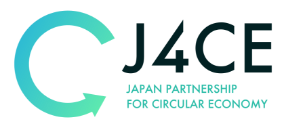Technological development and spread of a biomass plastic, Pararesin
[Company / organization] Euglena Co., Ltd.Seiko Epson CorporationNEC Corporation
Constituent members, their roles, and key points of collaboration
Euglena Co., Ltd., Seiko Epson Corporation, and NEC Corporation have established the Pararesin Japan Consortium in collaboration with Professor Tadahisa Iwata of the University of Tokyo,.
"Pararesin" is a bioplastic that uses Paramylon, the storage polysaccharide of the microalgae euglena. The three companies, which possess technologies at each stage to achieve the commercialization of Pararesin, agreed to form a consortium as the managing companies and accelerate the practical application of Pararesin by utilizing the expertise of each company.
Start date
The Pararesin Japan Consortium was established in December 2020.
In order to realize a stable supply of Pararesin, the constituent members of the consortium will standardize each step of the process until commercialization.
Description of technology and business model
Bioplastics are plastic materials produced by chemical or biological synthesis and processing of renewable biomass resources as raw materials.
Paramylon, a unique component of the microalgae euglena, is anpolysaccharided and its unique three-dimensional structure makes it possible to generate bioplastics with new properties such as good flowability.
By adjusting the cultivation method of euglena, we aim to produce Paramylon at high density, and to develop and spread bioplastics.
We also decompose cellulose extracted from waste paper or food-derived waste by utilizing enzymatic saccharification technology and use these saccharides as a nutrient to cultivate euglena for the production of Pararesin.
The goal is to create a resource circulation system using inedible bioplastics that utilizes waste which would otherwise be an environmental burden.
Achievements and goals
The Pararesin Japan Consortium aims to be able to supply bioplastics on the scale of 200,000 tons per year by 2030.
Website related to the initiative
- Renewable
- Design
- Production
- Plastics
- Company in different category.
- Initiatives for the future
- Case/initiative by multiple companies/ organisations






